
SOLASTA: Crown of the Magister Review
Tabletop RPGs have made a huge boom in popularity lately — it’s something I noted in my write-up about Baldur’s Gate 3. I mention it here again because the knock-on effect this rise is having on the gaming industry is easy to see. With this enters SOLASTA: Crown of the Magister, an RPG based upon Wizards of the Coast’s Dungeons & Dragons 5e SRD system that tells a new story in an original setting.
Brought to us by Tactical Adventures, in collaboration with WotC, Crown of the Magister drops players into the fractured world of Solasta, a realm still trying to recover from the ‘Cataclysm’, a seismic event of magical origins that brought the first gods, as well as humans, to Solasta. The party has been hired by The Council; an unofficial governing body composed of various powerful factions among the region, as Sheriffs. Tasked to investigate an outpost that has gone silent, your discoveries lead you on a trail of cursed magical items, mysterious shapeshifting creatures, and a secret from the past that could threaten all of Solasta.
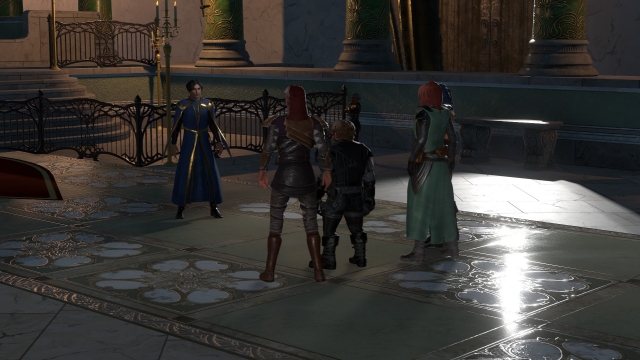
Crown of the Magister lets you create your very own party, using either pre-generated characters or making your own. You can choose from seven of the 12 classes available in the SRD; Cleric, Fighter, Paladin, Ranger, Rogue, Sorcerer and Wizard. You can choose from eight different backgrounds, such as Spy or Sellsword, to grant your characters additional benefits, ranging from the ability to wear better armour or proficiency in certain skills like stealth or persuasion. It’s close enough to the tabletop game that it’s clearly recognisable as D&D, but different enough that it comfortably sits in a videogame format. Tactical Adventures have also tweaked with Subclasses, slightly modifying some and adding brand new ones for each class that sit a bit more comfortably in the game’s setting. This mostly consists of offering advantages over creatures with a shapeshifting or darkvision ability which, spoiler alert, you’ll be dealing with a lot.
Once you’ve spent eight hours perfecting the look of each of your party members, you will be thrown into the tutorial that follows your four characters telling stories about the trouble they faced before arriving in the city of Caer Cyflen. Each story acts as a tutorial for that class, introducing you to the basics of the game's surprisingly clean UI, and dabbles into what each character can excel at. My Sorcerer's intro story involved her finding an old cave and using magic to light her way, whereas my Rogue found himself sneaking around an upper-class estate trying to steal back a friend’s possessions. It’s an engaging and effective way to introduce players to both the mechanics of the game and their characters.
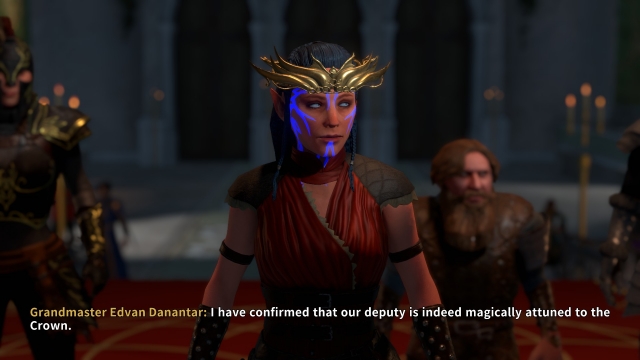
Those who have played D&D (or any TTRPG) know that there are generally two types of campaigns; ones where combat is prevalent, and ones where roleplay and story sit at the forefront. Crown of the Magister is much more the former, with combat taking such precedence that even just having an unoptimised party composition will punish you hard, especially in the early game. In addition to this, the story devolves into a saga of just being told to go places and do things. Even when the game tries to tie your player characters deeper into the overarching narrative, it still seems to take a backseat to just being told what to do by more important people rather than the characters having any of their own agency. If you want a simple D&D-esque adventure then Crown of the Magister certainly won’t disappoint, but it doesn’t seem to push the boat out much further from there.
In games where players feel more like a passenger to a story as opposed to an active force, the experience is usually carried by the performance of the other characters (looking at you, Dragon Age II). However, that isn’t quite the case with Crown of the Magister. Few characters you meet are very memorable, and part of that is due to animations looking very rigid and the voice acting being sub-par at best. During conversations with NPC, your party will crowd awkwardly around them like a pack of lost kittens, and walking animations made me feel like I was watching stop-motion animation. There are a few times where the voice acting shines, but not enough that it’s memorable or redeems the rest of the experience.
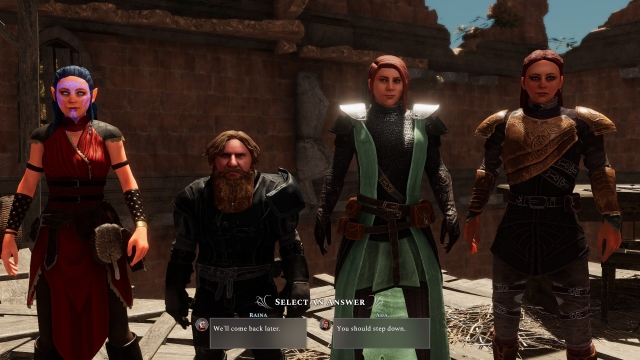
One thing I did like about the spoken lines, however, was the banter that could be had between your party members when you’re exploring and during combat. They will comment and bicker about locations they travel to, discuss items you find and even react accordingly with a taunt directed at another ally if they get a critical miss to let them know that they do in fact suck. It’s a small inclusion but it does a lot in making your party members feel like people, and watching a party of your literal creation jeer at each other's mistakes and bond over their victories makes you feel like a proud mother hen.
Given as combat is a majority of what you will be doing, how does it hold up? Ignoring the difficulty of it, quite well. The UI can be overwhelming at first, but quickly becomes easy to follow, and abilities that trigger on certain actions (such as Rogue sneak attack or Sorcerer metamagic) will give you a prompt as to whether you wish to use them or not. Certain quality-of-life choices and rule-changes that are common occurrences in the tabletop version are available as options that allow you to tinker with your experience to a surprisingly intricate level. Such examples are more value-based, such as causing allies/enemies to do more or less damage, but some act as pain relief for the TTRPG mechanics that otherwise induce malding in players. Such cases are auto-reviving downed players at the end of combat and —the most important for me during my run— spells with a somatic component no longer requiring a free hand. This is a rule often run in even combat-heavy D&D campaigns as a means of simplifying combat and meant that I didn't have to constantly juggle my Ranger & Paladin’s equipment to let them actually do what their classes are meant to do.
Difficulty mostly comes from an odd imbalance in certain encounters. Once you hit third/fifth level, the playing field evens out, but when I came across a random encounter in which my party of level two characters were met with a high-level spellcaster that one shot my party with a single spell on the first turn three saves in a row, I nearly uninstalled the game, and this was with the Deadlier AI setting apparently disabled, which supposedly stops things like that from happening. As mentioned above, difficulty can be tinkered quite thoroughly, but for those who don’t want to fine-tune everything it can be rather off-putting. I understand a videogame format of D&D demanding (and being able to accommodate) a more difficult combat system, but if I was playing D&D and my DM threw a spellcaster of at least fifth level at me when I was level two, I’d throw my chair at them. There’s also the Soraks, who act as the main antagonist race for the game and have surprisingly powerful abilities for creatures you’ll be facing from the get-go. These abilities can be easily countered (such as health regeneration, but only when in darkness), but in order to learn about these weaknesses, you either have to luck your way across finding it, or manage to defeat a group of them to learn their attributes, which involves trying to kill a band of enemies that are healing through any damage you deal to them. These collectively can make the early-game feel very unsatisfying and unrewarding to play, but if you can hold out through the first few missions, it peaks out and becomes a genuinely enjoyable and fulfilling dungeon crawler.
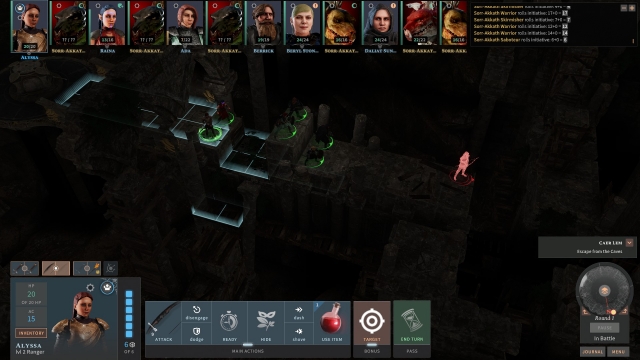
In terms of visual appearance, Crown of the Magister is good. A nod of the head. Solid thumbs up. Holds up well enough but nothing too extraordinary. Some of the locations do shine through and the overall level design, with a wide array of high and low ground complete with cover and environmental hazards, make for interesting set pieces of battlefields. When people aren’t speaking, the sound design does shine through. You can sometimes hear enemies before you see them, and your party can at times comment on this. Combat music is perfect for setting the mood, and perhaps my personal favorite when it comes to the sound is that every roll is accompanied by the sound of the dice itself. All TTRPG players live for the click-clack sounds of many dice, and Crown of the Magister absolutely delivers.
If you don’t get put off by the early-game pounding, SOLASTA: Crown of the Magister will take you around 40-50 hours on a first playthrough that will easily make the £30 price tag worthwhile, with a dungeon maker mode teasing even better longevity and the ability to play along custom-made campaigns. I’m generally not a fan of comparing games, but I can’t conclude this without drawing parallels to Baldur’s Gate 3, another CRPG based upon D&D 5e, and one I wrote about myself quite recently. To keep it simple, for a higher price, BG3 offers a more engaging RPG experience that hits every check in the list, and with only ⅓ of the game currently available in Early Access, that experience will only get bigger. If you’re looking for a modern virtual take on the D&D system and BG3 is out of your budget, SOLASTA may be what you want. The story and characters can be lacklustre, but it does have its charms, primarily in its customisation and ability to fine-tune the experience to exactly how you like. If you want a good old fashioned, dungeon-crawling RPG experience, SOLASTA: Crown of the Magister will keep you satisfied despite its flaws
Solasta: Crown of the Magister (Reviewed on Windows)
Game is enjoyable, outweighing the issues there may be.
SOLASTA: Crown of the Magister has its faults, but still manages to be an enjoyable RPG experience. if you just want a D&D-eqsue dungeon crawler to play through, there are certainly worse options to choose from.



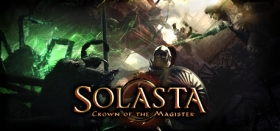







COMMENTS